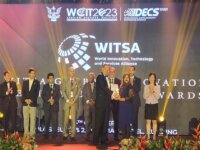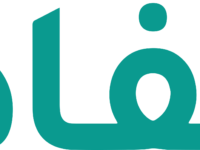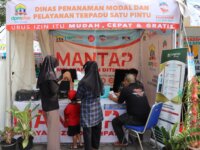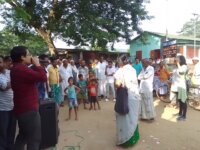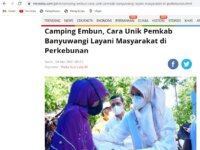In response to the universal issue of a demand-supply gap in the labor market in Bangladesh, the Aspire to Innovate (a2i) Program has launched National Intelligence for Skills, Education, Employment, and Entrepreneurship (NISE). The innovation seeks to utilise data to help those who wish to enter the job market make informed decisions. It is a pioneering approach that ensures collaboration between government ministries and skills service providers under one umbrella to remove unemployment.
Innovation Tag: Citizen Engagement
The Nafath app introduces a pioneering approach to authentication in Saudi Arabia. By leveraging biometrics and utilizing the mobile camera, it offers a secure and user-friendly app for authenticating user identity digitally. This innovative solution not only enhances identity authentication but also benefits all citizens and residents by simplifying digital interactions and empowering them to navigate the digital landscape with confidence, all through the convenience of their mobile devices.
Introducing a life event based services platform marks a shift to truly proactive, human/citizen-centric, and relevant public services in Estonia. This platform serves as a window for the citizens to seamlessly connect with institutions that deliver all essential information in one place at the time the citizen needs. Life event based services (like getting married, for instance) offer convenient, secure access to vital information, bringing together important events in an individual's life.
The investment and business sector in Serang City, especially for small-scale, is still facing licensing constraints. Easy Business License in One Step, comes as solution that allows business licensing and education services to the community, will be conducted at the village and sub-district, instead of having to go to the Investment and One-Stop Office. It will cut bureaucratic red tape so that people with time constraints, lack of understanding, and people with disabilities can be served.
People are demanding increased transparency and participation in government decision-making processes. Project Heart brought together people with lived experience, researchers, designers, and policy analysts to co-envision a way for engagement to be meaningful and bring about more caring and equitable futures for all. The findings are a rallying call for governments to change common practices and move towards co-designing policies/programs as a path to (re)building community relationships.
The Sewa Setu Portal is a transformative initiative by the Government of Assam that utilizes cutting-edge technology to revolutionize public service delivery. It addresses longstanding issues such as slow service, accessibility challenges, and bureaucratic delays, thereby enhancing efficiency, transparency, and accessibility for citizens and businesses. The project aims to offer over 1000 online services, including advanced features like automatic eligibility notifications and digital…
Tawakkalna Services is a digital super-app which was created to simplify and enhance daily life of individuals in Saudi Arabia. It modernizes service delivery and benefits over 31 million users by providing a unified access point for diverse services, from healthcare to civil affairs. Its innovation lies in creating a unified digital ecosystem of public and private offerings, reflecting a bold step in digital integration aligned with Saudi Vision 2030.
The gap in residency rights for residents living in plantation/forest areas has an impact on unequal distribution of social assistance, health, education and difficulty in accessing public services. The Camping Embun innovation is a camping activity which provides population administration services in plantation/forest areas and completes population documents that aren't there or haven't been updated. So that, residents in the area have legal certainty regarding ownership of population documents
UAsk, born from the need for seamless access to government services in the UAE, is an AI-powered chatbot transforming citizen engagement. Serving residents, businesses, and visitors, it leverages generative AI, particularly ChatGPT, for real-time, multilingual, and reliable information. Its innovation lies in delivering an inclusive, user-centric, and efficient digital experience, revolutionizing interactions with diverse government services within the digital governance realm.
Case Study
SIMPATI (Sistem Informasi Pencegahan Stunting Terintegrasi – Integrated Stunting Prevention…
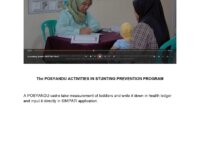
The Local Government of Sumedang Regency, Indonesia has developed a new platform, ‘SIMPATI (Sistem Informasi Pencegahan Stunting Terintegrasi - Integrated Stunting Prevention Information System)’, as a tool to collect real-time data to make stunting reduction programs more effective and integrated. Through the SIMPATI platform, the government has a way of improving stunting reduction program, increasing stunting data management, and decreasing the stunting rate to solve the problem.

